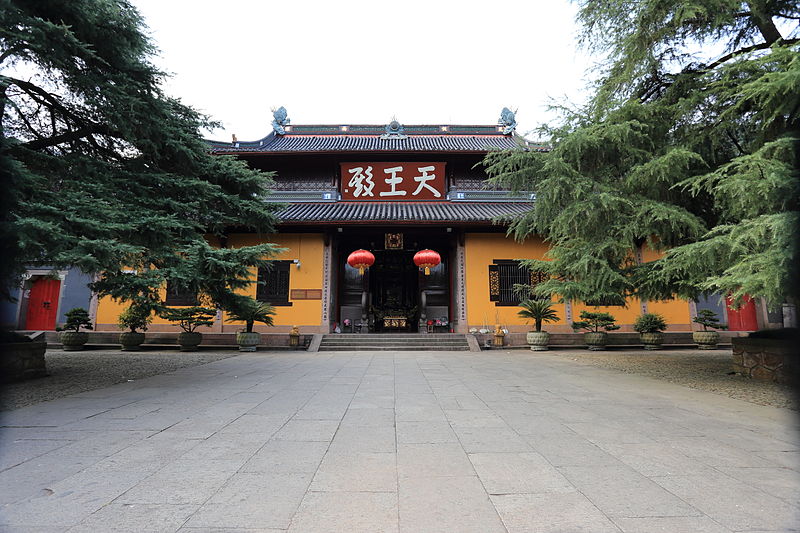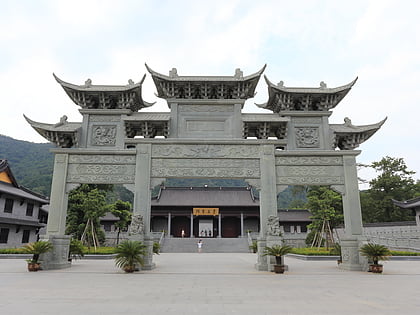Tiantong Temple


Facts and practical information
Nestled within the lush, verdant hills of Ningbo, Zhejiang Province, Tiantong Temple is a serene oasis and a bastion of Zen Buddhism in China. This ancient temple, with a history spanning over 1,100 years, has long been a destination for pilgrims and those seeking tranquility and spiritual enlightenment.
Founded during the Tang Dynasty in 300 AD, Tiantong Temple is one of the most important and revered Buddhist sites in the country. The temple complex is an architectural marvel, boasting traditional Chinese structures, including grand halls, peaceful courtyards, towering pagodas, and an extensive library of Buddhist scriptures.
The temple is not only a spiritual center but also a cultural treasure. Its tranquil gardens and age-old trees provide a perfect backdrop for meditation and reflection. The main hall, known as the Grand Hall of the Great Sage, is the heart of the temple and houses an impressive statue of Sakyamuni Buddha, drawing worshippers and tourists alike to admire its splendor.
Tiantong Temple's significance is further highlighted by its connection to prominent historical figures in Zen Buddhism. It was here that the 13th-century Japanese monk Dogen, who would later establish the Soto school of Zen, studied before bringing his teachings back to Japan.
Zhejiang
Tiantong Temple – popular in the area (distance from the attraction)
Nearby attractions include: Temple of King Ashoka.

